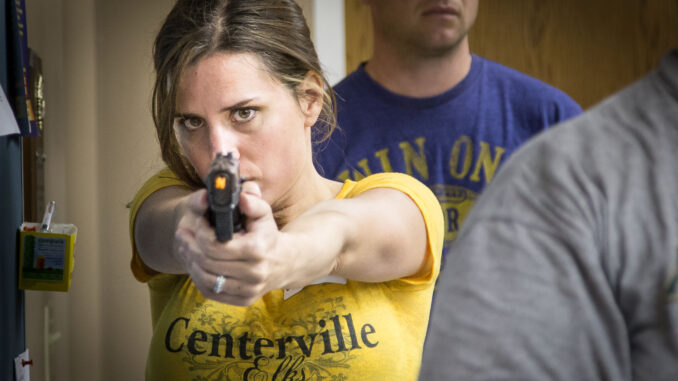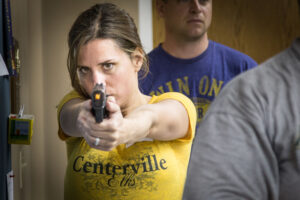

Emily Ambery | Staff Writer
02/11/2021
This year marks the 14th Annual Human Rights Film Series (HRFS) at Duquesne. Throughout February, the Department of Modern Languages and Literatures is presenting the series entirely virtually.
Its theme, “Race, Rights, and Responsibilities,” was selected by the HRFS Committee consisting of German professor Edith Krause and Spanish professors Mark Frisch and Leonardo Bacarreza. The films focus on issues of race, gun violence, the consequences of technology and the use and misuse of gene science.
“All these are compelling issues that have been at the forefront of our national discussion and our self-understanding as a nation,” Krause said. “They address both our rights and our responsibilities as individuals and citizens.”
John Lewis: Get in the Way (2017) was streamed virtually on Feb. 1, and was followed by speaker George Yancy, a professor of philosophy at Emory University. G is for Gun (2018) streamed on Feb. 9, followed by speaker Detective Joseph Bielevicz of the Pittsburgh Police department.
“During the summer and fall semester, we all watch a number of different films; there are some issues that are particularly relevant in Pittsburgh, in the country or in the world, and we look for films relating to them,” Frisch said. “The human rights films series seeks to highlight problems we all face or others face and ask people to recognize the humanity of others and try to work together to solve the issues.”
Death by Design (2018) will be streamed on Feb. 17 at 7 p.m. and will host speaker Jim Weber, who is a professor of Business Ethics & Management at Duquesne. A Dangerous Idea: Eugenics, Genetics, and the American Dream (2017) will be streamed on Feb. 25 at 7 p.m., and will be followed by speaker Michael Seaman, an associate professor at Duquesne’s Bayer School of Natural and Environmental Sciences.
The HRFS has always been free and open to the public, but with this year’s completely virtual format, the series has been able to reach farther than the Duquesne and Pittsburgh communities.
“It’s the first time we’re experimenting with a completely virtual event, and the results have been quite favorable,” Bacarreza said. “The virtual environment has allowed us, for example, to invite Professor George Yancy from Emory, and we have also expanded our audience to online viewers in other universities and in the Pittsburgh community.”
The film series promotes diversity of thought and experience. It aims to reach beyond the modern languages department to the larger campus community by engaging students in the conversation through the promotion of human rights films followed by an interactive discussion with an expert on the topic.
“It was very informational and emotionally engaging that when the hour passed, I was surprised it had already been an hour,” said Amber Delprince, a third-year Spanish major who attended the first film.
Delprince attended the viewing for John Lewis: Get in the Way and felt that the film’s purpose was clear.
“I thought the message was also really important because even though we’re taught about some of the ‘big names’ that contribute to a movement, there’s a lot of other people involved who usually get little-to-no credit even though the movement wouldn’t have been possible without them,” Delprince said.
The focus on human rights in the Duquesne community continues with the tradition of the HRFS, and inspires dialogue about the most critical issues facing today’s world.
“Human rights are conceivable because there is a foundational dignity, shared by all human beings, in which we need to believe,” Bacarreza said. “As language educators, we understand that words can and need to be used to denounce abuse, and that they can also be used to build community, to bring people together, to have intelligent discussions that ultimately solidify the foundations of society.”
All livestream and discussion recordings are available for viewers to watch if they missed the live event.



